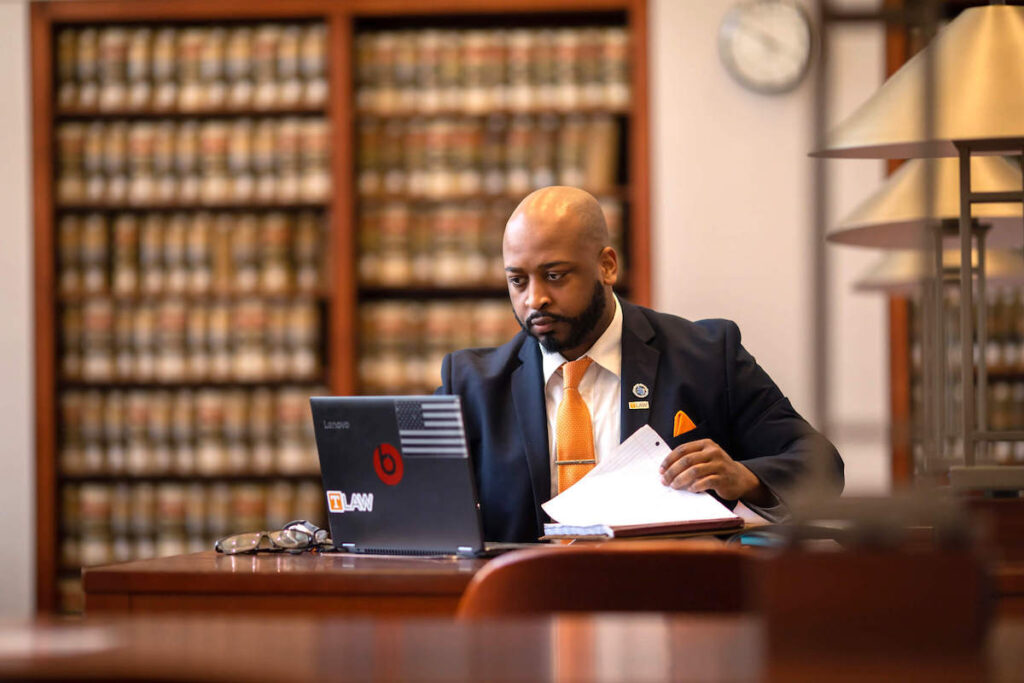To this day, many people are still not aware of the existence of the notary work until they have to deal with legal or financial transactions. Very often, when discovering their existence, people ask what is a notary – among many other common questions regarding this professional’s official competence.
So our goal in this article is to give that answer – and explain in detail what the job of a notary is, from start to finish. Shall we get right to it?
What is a notary?

A notary, often referred to as a notary public, is a public official appointed by a governmental authority to serve as an impartial witness in the signing of important documents.
Their primary role is to prevent fraud and ensure that the signers of a document are who they claim to be, are signing willingly, and understand the contents of the document. Notaries play a crucial role in a variety of legal and financial transactions.
The responsibilities of a notary vary depending on the jurisdiction, though they generally include:
- Verification of identity: A notary confirms the identity of the signers by checking government-issued identification such as passports or driver’s licenses. This step is crucial in preventing identity theft and fraud.
- Witnessing signatures: The notary witnesses the signing of documents to ensure that the signers are doing so voluntarily and are aware of the contents of the document. This can involve asking the signers if they understand what they are signing and if they are doing so of their own free will.
- Administering oaths and affirmations: Notaries can administer oaths and affirmations – which are legally binding promises, to tell the truth. This is often required for affidavits and other sworn statements.
- Recording transactions: Notaries maintain a detailed record of the notarizations they perform. This log can serve as evidence if the validity of the notarized document is later challenged.
- Affixing the notary seal: The notary’s seal or stamp is affixed to the document, along with their signature. This seal indicates that the document has been notarized and is a key element in its authenticity.
Read also: Can a notary apostille a document?
Common types of documents notarized
Notaries can notarize a wide range of documents – including real estate, legal, financial, and business documents.
Real estate documents often require notarization to be legally binding. These include deeds, which transfer property ownership, and mortgages, which are agreements where a bank lends money in exchange for taking the title of the debtor’s property.
Other examples are lease agreements to outline the terms for renting property, refinancing agreements of an existing mortgage with a new loan, and lien releases so a lienholder can have the claim on a property.
As for legal documents, these include wills, which set forth how a person’s assets will be distributed after death, and trusts, which allow a trustee to hold assets for a beneficiary.

Notaries can also validate documents that grant powers of attorney, an authorization for one person to act on another’s behalf in legal or financial matters.
Other examples of legal documents are aforementioned affidavits, which are written statements confirmed by oath for use as evidence in court, and consent forms permitting something to happen, often used in legal, medical, or business settings.
Financial documents often require notarization to prevent fraud and are a big part of the job of what is a notary.
The most common documents are loan agreements, which are contracts outlining the terms of a loan, and general contracts of agreement between two or more parties.
Another important document is the promissory note – a written promise to pay a specified amount of money at a future date. Notaries can also work with investment documents, relating to buying, selling, or transferring investments from one account to another.
Business documents also need notarization to ensure their legal validity and protect against fraud. These include incorporation papers, which are filed to legally create a corporation, and bylaws, which are internal rules adopted by a corporation’s board of directors.
Partnership agreements and other contracts outlining the terms of a business relationship, in this sense, may also need notarization.
How to become a notary in your city

Becoming a notary involves a series of steps that can vary by jurisdiction, but generally follow a common process.
Aspiring notaries must meet certain eligibility requirements. This typically includes being at least 18 years old, being a legal resident of the jurisdiction, and having no felony convictions.
Once these criteria are met, the next step is to complete an application process. This process often involves filling out forms and may include undergoing a background check to ensure the applicant’s suitability for the role.
In many jurisdictions, prospective notaries are also required to take a training course. This course covers the responsibilities and legal requirements of a notary, providing essential knowledge about the duties they will perform.
After completing the training, applicants may need to pass an examination. This exam tests their understanding of notary law and procedures to ensure they are well-prepared to handle their official duties.
Additionally, obtaining a surety bond is usually a requirement. A surety bond serves as a form of insurance that protects the public from any errors or misconduct by the notary.
Once all these steps are successfully completed, the notary receives an official appointment or commission from the governing authority. This formalizes their status as a notary, allowing them to begin performing notarial acts within their jurisdiction.
Read also: What documents can a notary not notarize?

Where to find a notary?
To find a notary, you have several options. Many banks and law offices offer notary services to their customers – so you can start by visiting your local branch or calling ahead to check if they offer notary services.
UPS Stores often provide notary services as well, and you can locate a nearby store using their store locator on their website. Local government offices, such as county clerk offices, sometimes also offer notary services.
Additionally, some public libraries and teal estate offices may have notaries on staff, but it is always a good idea to call ahead to make sure you don’t waste your time.
Mobile notary services – in short, where a notary travels to your location to notarize documents – are also a very good option that can be found through an online search, by the way. And a preference of many!
Fortunately, if you are around Central Florida, we here at Mobile Notary Orlando are always available to help you out. And when we say always, we mean it: being available 24/7, our team serves the Orange, Seminole, Osceola, and Brevard Counties with sharp eyes and hands.
So you can call us at (407) 765-0454 or reach us through the email dossantosnotary@gmail.com anytime, 7 days a week. We’ll be glad to help!






